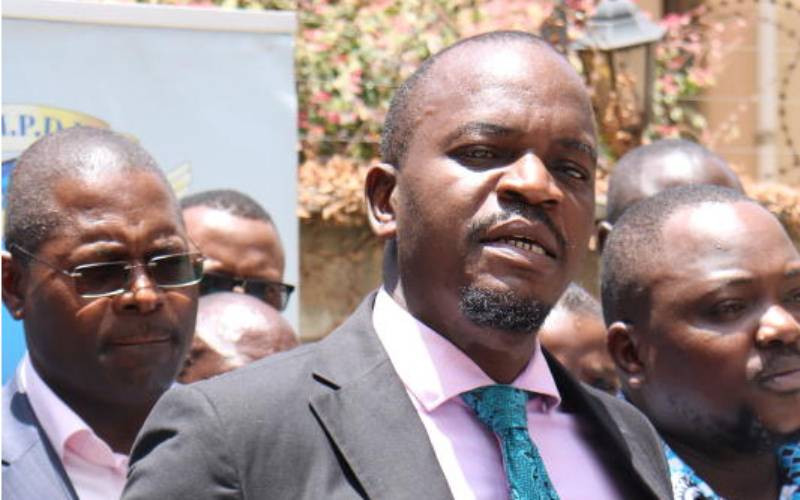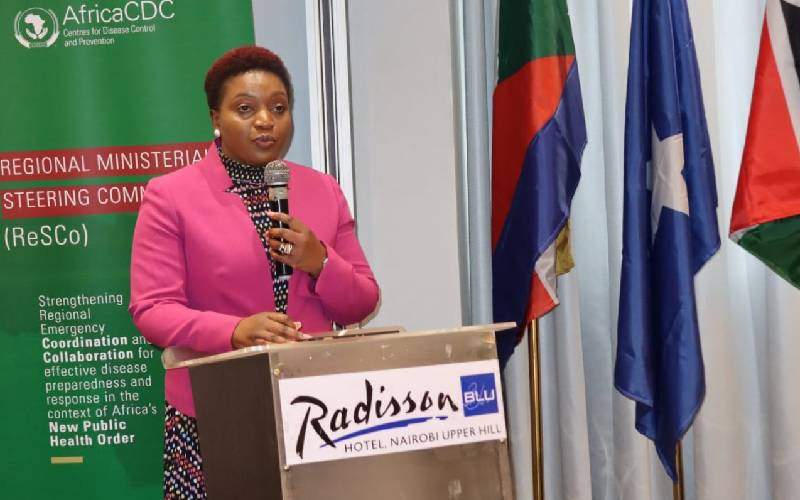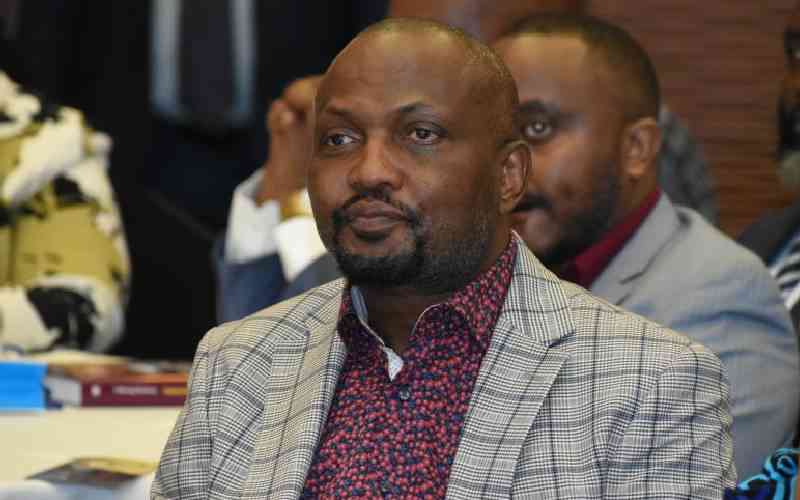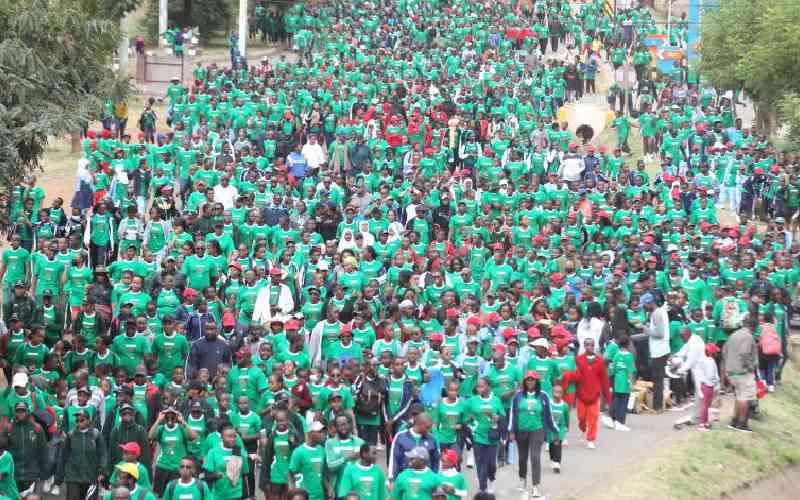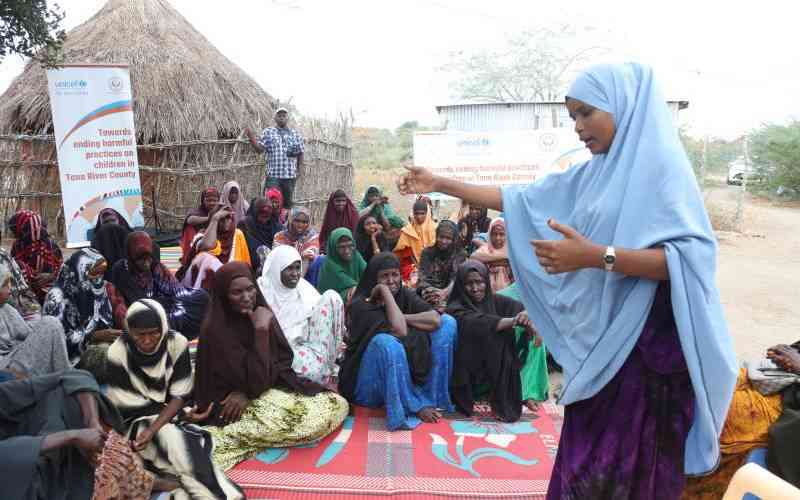
When Okon Abdi was four years old, she went through a very hurtful and painful experience that has stuck in her mind to adulthood.
“When I was two years old, I contracted polio which led to a lifelong disability. As I grew up and came to understand what had happened, I kept hoping my parents would seek alternatives on how I could be treated but, unbelievably, they subjected me to FGM,” narrates Okon, who is now a 30-year-old mother of one.
Okon says that whenever she talks about FGM in disabled women or girls, she gets emotional.
“Imagine the pain that a girl who is not disabled goes through and the evil act is being done to a disabled girl who is in a wheelchair and cannot help herself or cannot run away from the harmful act,” she narrates.
Okon laments that most FGM awareness campaigns target girls who are physically able and forget to include those who are disabled.
“Being a nomadic daughter from Garisa, the lifestyle, lack of education and lack of awareness on FGM in my home county made things even harder,” she says.
“I was taken to a boarding school not because it was my parents' wish but because I could not cope with my family’s nomadic way of life,” narrates Okon.
- Seven First Ladies join hands in fight against FGM as Kuria community vow to end vice
- Borana leaders urge elders to enforce FGM ban
- First Lady calls action on rising FGM cases
- Anti-FGM advocates want law amended to deter practitioners
Keep Reading
Okon says she values opportunities that allow her to share her story.
“As a survivor, I must educate girls from all counties against FGM. I want to thank the people behind the anti-FGM movements that have been bridging the gap so that our country will be at Zero FGM cases in 2030,” Okon says.
She says that through the campaigns and the education she acquired, she is now an FGM activist in her home town and she promises to protect both abled and disabled girls in the northern region.
Just like Okon, Sally Chepchumba, a teacher from Elgeyo Marakwet who is an FGM survivor says that it is good to value our African culture but we should not be proud of cultural activities that oppress women or girls.
“I love my Marakwet culture so much, it is beautiful. However, I just think that there are some things we can do away with. Let us all insist on love and fight for every girl child,” Chepchumba says.
She says that it is important for them as survivors to be at the forefront when creating awareness in the communities because she believes in the saying, ‘the wearer of the shoes knows where it pinches most.’
“I went through that pain and I know how it feels. I have gone through psychological torture and anger every time I am asked to tell my story. I can now boldly say that FGM is not a rite of passage but a violation of woman’s rights,” Chepchumba says.
She describes the anger many FGM survivors feel mostly comes from the betrayal or hurt by the people they trust most.
“I went through FGM at the age of 11. I trusted my dad and mum to protect me but they believed they were doing something good for me. Instead, they stole my happiness and my childhood. They made me go through the pain that I remember to date,” she states.
She adds that it is not right for any girl to go through FGM as a validation to be a woman instead they need that freedom to play and thrive in a safe environment.
She remembers how traumatic the healing process was and says that she wouldn’t wish the same for any other girl.
“I wish I could be the last survivor. I want the girl that was cut yesterday to be the last survivor,” says Chepchumba.
FGM remains the most prevalent human rights violation in the world. Despite most countries passing laws to combat FGM among girls, weak enforcement and cultural norms remain a significant problem.
Globally, an estimated 200 million girls and women alive today have undergone female genital mutilation (FGM) in 30 countries in Africa, the Middle East and Asia.
On June 4, 2019, former President Uhuru Kenyatta made a firm commitment to put an end to female genital mutilation (FGM) by the year 2022.
The enactment of the Prohibition of FGM Act, of 2011 was a key milestone in the campaign to end FGM in the country.
Despite the legislative and policy measures put in place to prohibit the practice, Kenya is still grappling with the FGM issue as it persists in certain communities in the country.
 The Standard Group Plc is a multi-media organization with investments in media platforms spanning newspaper print
operations, television, radio broadcasting, digital and online services. The Standard Group is recognized as a
leading multi-media house in Kenya with a key influence in matters of national and international interest.
The Standard Group Plc is a multi-media organization with investments in media platforms spanning newspaper print
operations, television, radio broadcasting, digital and online services. The Standard Group is recognized as a
leading multi-media house in Kenya with a key influence in matters of national and international interest.


